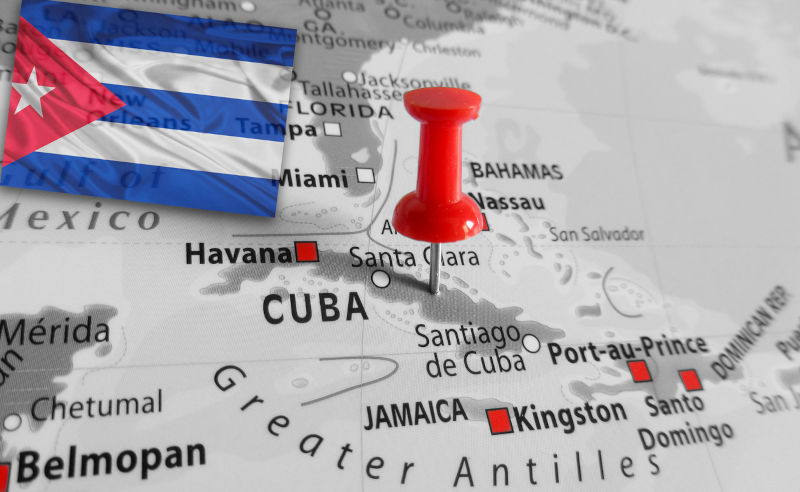Australia condemns brazen US blockade of Cuba in UNGA vote
February 22, 2023
Australia should be proud of its vote in the General Assembly in November last year to condemn the ongoing US blockade of Cuba.
The writers attention has been drawn to a vote in the U.N. General Assembly in November 2022. It is a matter of concern that it was not known to me, but more of that later.
On 3 November 2022 the U.N. General Assembly voted an overwhelming 185 votes in favour to two against to condemn Washingtons six decades blockade of Cuba. There were two abstentions Brazil and Ukraine. The two against were wait for it the US and Israel. Proudly, for all of us, Australian voted in favour. Of course, at the time of the vote, Brazil was still ruled by the far-right Bolsonaro. Who knows why the NATO client regime in Ukraine abstained.
So, what is the US objective? The US embargo was officially declared in 1962. A 1960 State Department memo, following Castros victory in the Cuban Revolution in 1959, states US intentions: the majority of Cubans support Castro: and there is no effective political opposition. The only foreseeable means of alienating internal support is through disenchantment and disaffection based on economic dissatisfaction and hardship. (In parenthesis, so much for respecting Cuban democracy). The goal was to make the greatest inroads in denying money and supplies to Cuba, to decrease monetary and real wages, to bring about hunger, desperation and overthrow of government..
And in fact there can be no doubt that the US sanctions have hindered the development of the potential of the Cuban economy. It hinders development and creates economic hardship for the people of Cuba. Put simply, it violates the rights of all Cuban citizens.
The brazenness of this US conduct goes even further. The companies of third-party countries which trade with Cuba can be sued in the US. This has drastically reduced commercial partners which operate in the country.
Much credit for publicising the continuation of US sanctions must be given to Mexicos President Andres Obrador. In mid-2022 he condemned the sanctions as a type of genocide, a tremendous violation of human rights, and a flagrant violation of international law. Obrador praised Castro as a visionary, and denounced neoliberalism.
So what follows from all this? The first thing that we must do is compare US sanctions of Cuba, with similar sanctions of Syria note Syria under the American whip: sanctions that kill P&I Feb.14, 2023. Then we must note the identity of the other country that voted no Israel. There can be no doubt that US sanctions of Syria are Israeli inspired. These two states the US and Israel must be brought to account. Could they be described as rogue (?), or pariah (?) states?
I understand that the US demands respect for the sovereign rights of nations: viz. Ukraine, Taiwan even accepting that the latter is not a nation. So how does the US reconcile its total disrespect for the sovereign rights of Cuba and Syria?
Thats where our government comes in. In the first place, Australia should have been proud of its vote in favour of the resolution (over Cuba) in the General Assembly. It should have widely publicised its vote to the Australian people. I dont believe that it did. This comes back to my lack of knowledge of the vote. Perhaps it flows from the fact that I dont read the Murdoch press.
Australia must distance itself from the US particularly over the China/Taiwan issue. Australia must reject US geopolitical hegemony, and its so-called rules based order.
And Australia must similarly distance itself from Israel, by recognising Palestine, and calling out an apartheid Israel.
A final thought: how much of this US neoliberalism and extension of hegemony through NATO expansion aimed at the depowering of Russia, is behind the failure of Russian peace approaches in respect of Ukraine occurring in December 2021 and March 2022?
And so to some questions. What has Australia done since the UN vote to encourage the US to respect it and end the blockade? And what has Australia done to advance a similar vote in respect of sanctions against Syria? And if the US is not interested in any view expressed by Australia, why is Australia affording the US access to Australian land to aid the USs military agenda?
I look forward to some answers.

